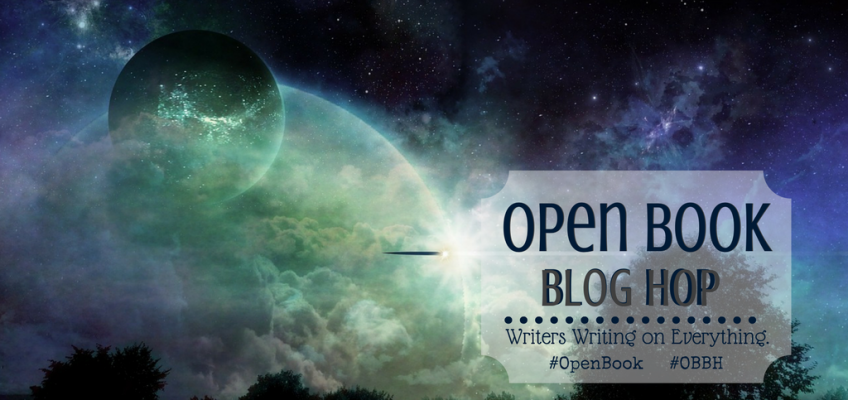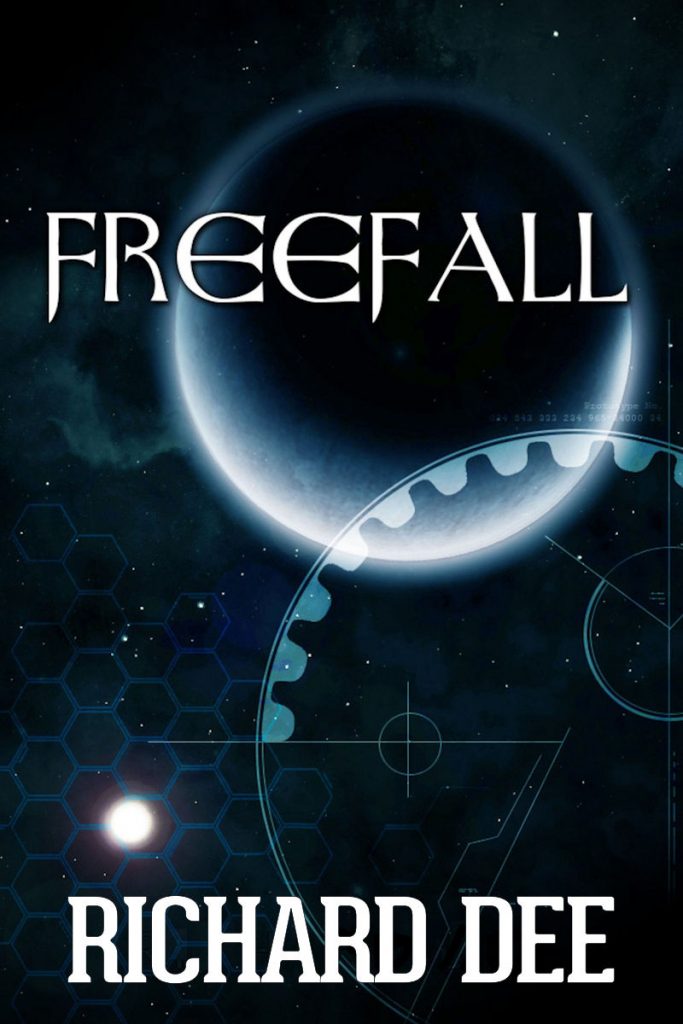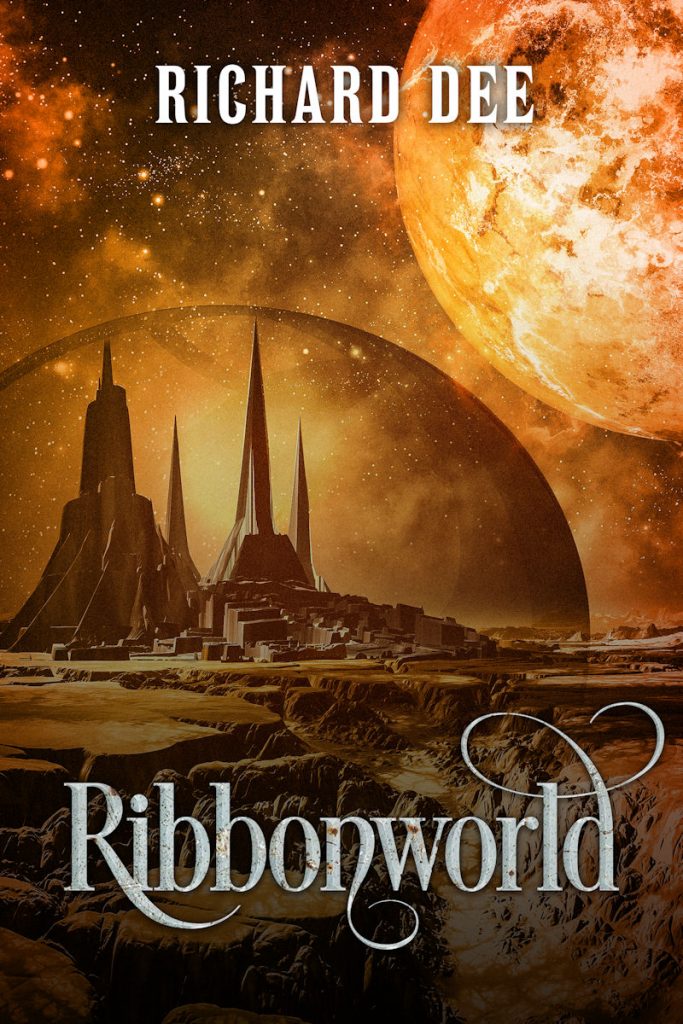With apologies to Paul Carrack. Welcome to another BlogHop, with #OpenBook. Here’s this week’s prompt.
How many hours a day do you write? How long on average does it take you to write a book?
Before we begin, I had a request after last weeks BlogHop post to put my avatar pictures on my blog.
So here they are.


Back to the prompt.
I wrote the first paragraphs of what was to become Freefall way back in 1979. I initially thought it would be a short story. I got to where I thought would be a good ending and left it, meaning to return one day. Life got in the way and I never did go back.
In 2011 I started it again, I actually had an idea for a second short story, which I realised could be joined to the first and would turn it into a novel.
Freefall was published in April 2013. Which is 34 years! Far too long a time to base a writing career on.
I wrote my second novel, Ribbonworld as a NaNoWriMo project in 2014, with time on my hands when I was off work with a shoulder injury. I’d had an experience that seemed like a good starting point for a mystery. It took me a month to write the bulk of it and a few months to edit and polish, it was published in 2015, a year after I started it.
My idea then was to produce one novel a year. But I found that I was getting quicker, ideas flowed and I had a job keeping up.
I now write about 1500 to 2000 words on most days. I don’t keep score anymore. I did in 2017, just to see how many words I would actually write over the twelve-month period.
I wrote 514,000 words in the year and published four novels and a book of short stories. I was really surprised to find out the total. I never felt under any pressure to write that much; I never do. When the ideas come into my head, I just put them down.
Now, I often construct a novel ready for a beta read in two months or less, ready for publication in six months. As I often find myself switching between projects, the six-month periods overlap, enabling more than two books a year. Sequels tend to be quicker as I already have the world, it just needs a plot. New work takes a while longer as I have to start from scratch and create the setting as well as tell the story. A lot of that time is actually spent waiting for my editor or beta readers to work their magic, I’d hate to rush them; of course, I can carry on writing the next book while I wait.
This year, I’m attempting NaNoWriMo for the fifth time. I have had three successful novels from the challenge, with my 2018 project ready for publication in March 2020. A bit later than I would have liked but it’s the first of a new series and I had other things to publish first. Readers ask me for sequels and I hate to disappoint. So far, I’m keeping up with the NaNo challenge and if it all goes well, I’ll have a first draft for my editor by Christmas. The edited novel will then go to my beta readers, if they like it, I will publish it later in2020.
I tend to write for an hour or so early in the morning (before anyone else is around) and again late at night, especially in summer, when there is so much else that I want to do in the day. In winter, or when it’s raining, I may do a bit in the day if I’m not going out. I don’t set a formal daily target of time or words. It’s always apparent when to stop as the inspiration will dry up, whether it’s after an hour or some other amount of time.
What about you? please let me know your thoughts, your writing routines and how long it takes you to complete a novel. Leave a comment below.
I’ll be back on Thursday with another Showcase post, featuring an Indie Author with something to say. Please click the links to see the other great blogs on this hop.





Stevie Turner
Love the avatar! Well done for taking part and completing NaNoWriMo five times. I wouldn’t even consider doing something like that. The older I get, the longer it takes me to write a story.
Richard Dee
Thanks. I don’t claim any credit. I just watch a film in my head and write what I see.
Lela Markham
Nano works so long as I adapt it to my method of writing. I can’t rush my characters and have them continue telling me their stories. I learned that after I silenced my characters on my first Nano outting — for a book that was really bad. I think discovery writers like us have to listen to the characters — however they tell their story – you watch a film, my characters seem to narrate major parts of the story in my head. If you can write a whole book over the course of one month, go for it. I’m not going to try that again.
The value of Nano, I think, is in setting a goal and being able to chart your progress. I learned to focus on one project for a month and that is extremely valuable for finishing drafts in three months.
I find it interesting that you submit to betas after your manuscript goes to the editor. I save quite a lot of money by sending a really manicured manuscript to my editor – a friend who might not be as “mean” as my betas sometimes are, so I do betas first. I want to make sure it’s a good story before the grammar gets repaired. But different ways work for different writers.
Richard Dee
I tried the other way and found that, instead of my betas concentrating on the story, the unedited nature of the draft distracted them. The story will have a re-write and another edit after they have done their bit.
P.J. MacLayne
I’ve done Nano several times, sometimes successfully, sometimes not. It feels like a really good way to get words on paper without overthinking them, which I often do. Right now I’m debating over a sentence about birds not singing- do I name the type of birds or not? If I was writing for Nano, I wouldn’t worry about it!
Richard Dee
I abandon all self-editing and just bash words down in November. I’ve found that when I do come to tidy up, I often spot things I don’t remember writing.
Roberta Eaton Cheadle
Well, I certainly can’t lay claim to 34 years, Richard. I only started writing in about 2014 and published my first children’s book in 2016. Children’s books are shorter and easier to write but my illustrations are very time consuming.
Richard Dee
I only restarted because the idea that I had to wouldn’t go, it kept repeating in my head. Once I started, it was like turning on a tap. More ideas poured in.